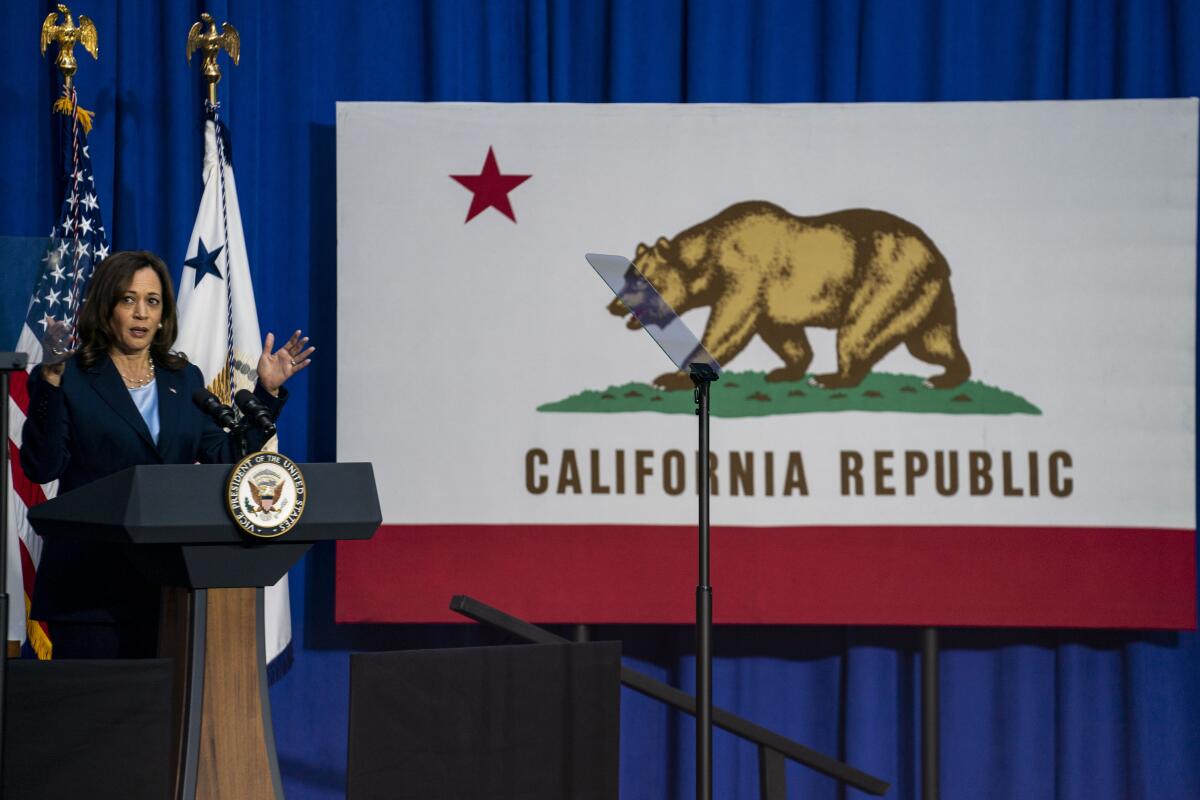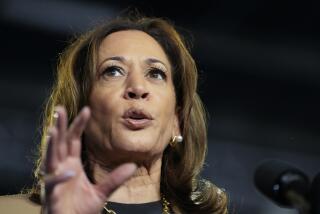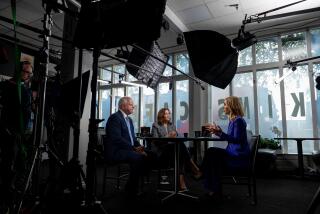Kamala Harris went to California to recharge. She returned to Washington with the coronavirus

- Share via
WASHINGTON — Vice President Kamala Harris can’t seem to catch a break. Every unsettling laugh or awkward monologue becomes a viral video. A buzzy book out next week, “This Will Not Pass,” portrays her role in the Biden administration as slight, despite promises she would be an influential vice president.
So last week, she went to California to recharge. She came back a day early only to test positive for the coronavirus.
Here are five questions that have frequently come up since the vice president has been isolating at her residence at the U.S. Naval Observatory:
Why isn’t this a bigger deal? Didn’t we hear more about top administration officials catching COVID-19 when President Trump was in the White House?
This is true. But if you take a step back to when Trump caught the disease, you will recall it was October 2020. He was 74, overweight and, most important, there were no vaccines on the market. Nor were there as many proven treatments.
Harris, 57, has been vaccinated and twice boosted. As of Wednesday morning, she is symptom-free, her office says.
The novelty of catching COVID-19 has also worn off. A study released by the Centers for Disease Control and Prevention on Tuesday found that nearly 60% of Americans have had it.
If she didn’t have symptoms, why did she take an anti-viral medication?
Harris took Paxlovid, a drug developed by Pfizer to treat people at high risk of becoming severely ill from the virus, including those over age 65 or with chronic conditions. The drug, which won emergency approval in December, reduced risk of hospitalization and death by nearly 90% in a clinical trial.
Her office has been reticent about why Harris was prescribed the drug, but pointed to CDC guidance that said people over 50 are in a higher-risk category for getting very sick. That risk, obviously, increases for people as they age into their 60s and beyond.
The biggest reason seems to be that she’s the vice president, a heartbeat away from sitting behind the Resolute Desk, as they say. So, the risk calculus is different.
How is she doing now?
The White House said Wednesday afternoon that Harris remained asymptomatic and was in touch with advisors while working from home.
Is the president taking extra precautions? He is 79 and the leader of the free world!
So far, he is not doing anything differently. He attended former Secretary of State Madeleine Albright’s memorial service Wednesday morning. He plans to attend a crowded White House Correspondents’ Assn. dinner on Saturday before flying Sunday to Minnesota for former Vice President Walter Mondale’s funeral.
“Like many Americans, he makes risk assessments,” White House Press Secretary Jen Psaki told reporters Tuesday.
That surprised Jeffrey Koplan, a former CDC director who said in an interview that Biden is not like most Americans. Koplan noted that Biden is commander in chief at a time of war in Europe and is also “someone who is at risk at least by virtue of age.”
“Being vice president or president does include responsibilities which does include make yourself as healthy as possible because we need you in your job,” Koplan added.
So the majority of Americans have had COVID-19 and most vaccinated people are fine. Harris’ positive test was met with a shrug. Does that mean we are done with this whole pandemic thing?
It depends on whom you ask and how you ask it.
Dr. Anthony Fauci, Biden’s chief medical advisor, said on “PBS NewsHour” Tuesday that “we are certainly, right now, in this country, out of the pandemic phase,” but “if you look at the global situation, there’s no doubt this pandemic is still ongoing.”
“Namely, we don’t have 900,000 new infections a day and tens and tens and tens of thousands of hospitalizations and thousands of deaths,” he continued.
He said the virus won’t go away completely. Instead we have to keep it at a low level and vaccinate people and continue giving boosters. Even so, Fauci told the New York Times he would be skipping the White House Correspondents’ Assn. dinner “because of my individual assessment of my personal risk.”
Fauci further amended his comments on Wednesday, telling CBS News the pandemic is not actually over, but that the “acute” and “accelerated” periods have subsided.
Koplan believes there is still plenty to worry about.
“It’s one thing to say we’re going to normalize this, but what does normalize mean if there are new variants that are even less kind to us than the ones we have seen so far?”
More to Read
Get the L.A. Times Politics newsletter
Deeply reported insights into legislation, politics and policy from Sacramento, Washington and beyond. In your inbox three times per week.
You may occasionally receive promotional content from the Los Angeles Times.











